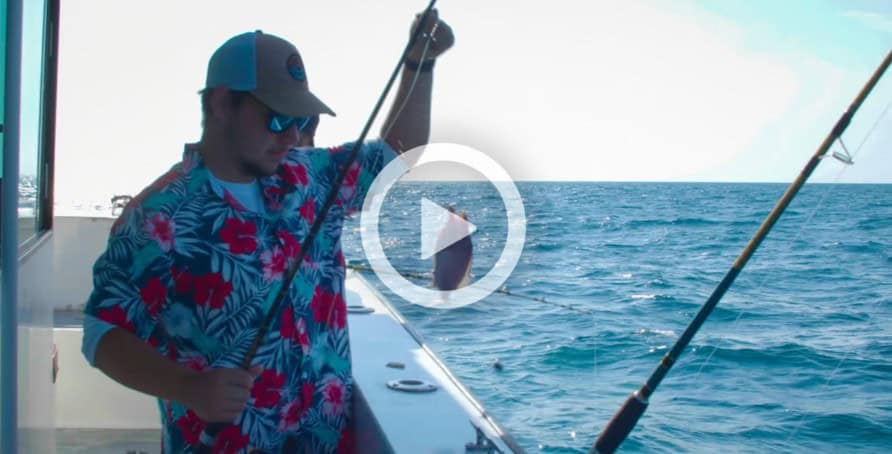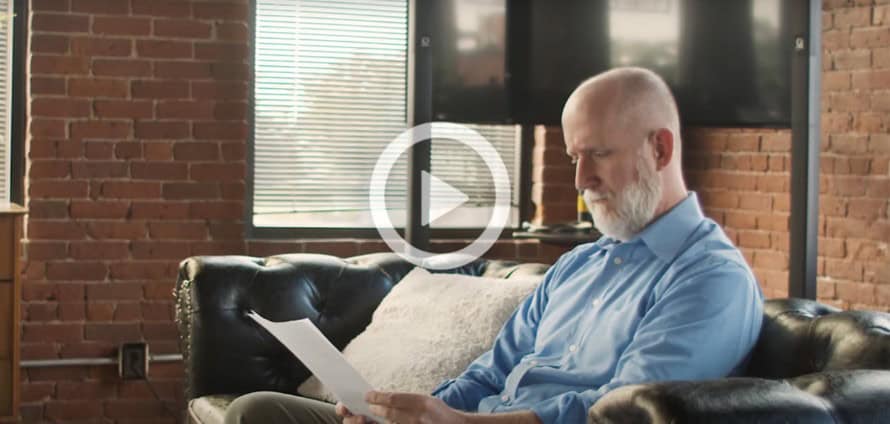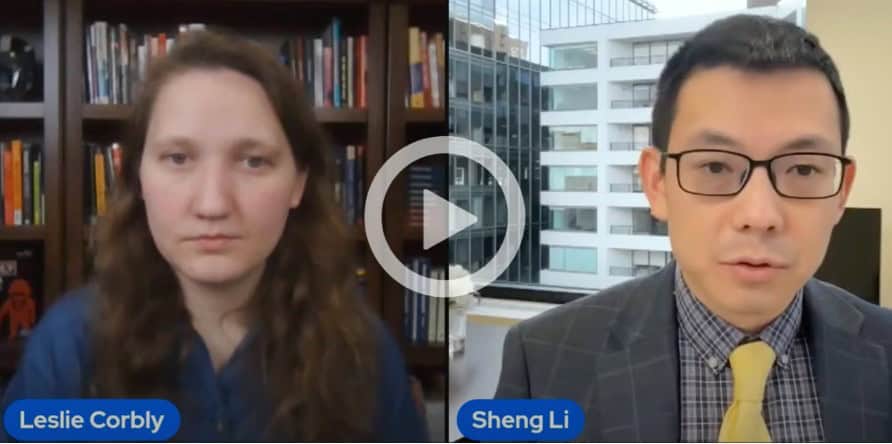February 2023
| Our clients are our heroes. That’s why we dedicate each and every day to fighting against bureaucratic federal agencies that abuse their power. In a recent win for charter boat captains in the Gulf of Mexico, the Fifth Circuit has struck down the National Marine Fisheries Service’s unconstitutional 24-hour GPS tracking rule for charter vessels. But the Administrative State is still working hard to trample Americans’ civil liberties. In Connecticut, NCLA is asking the Second Circuit to strike down a new ethics rule that muzzles attorneys’ free speech. Yep, more government-backed censorship. Keep reading below to follow what’s happening at NCLANow! |
| The Latest |
 |
| Video: Recreational charter boat captains in the Gulf of Mexico were required by NMFS to have 24-hour GPS tracking devices on their vessels |
| In a Major NCLA Win, Fifth Circuit Tosses Back NMFS Rule Trying to Track Charter Boats Without a Warrant |
| In a landmark win for charter boat fishermen across the Gulf of Mexico, the U.S. Court of Appeals for the Fifth Circuit has struck down a controversial Final Rule issued by the National Marine Fisheries Service, which required 24-hour GPS tracking of recreational charter boat fishing vessels and reporting of confidential economic data. As Judge Jennifer Walker Elrod wrote, “in promulgating this regulation, the Government committed multiple independent Administrative Procedure Act violations, and very likely violated the Fourth Amendment.” The ruling is major for many reasons, including that the government tried to claim that charter boat fishing is a “closely-regulated industry” to which the Fourth Amendment does not apply. Read more>> |
| Cases to Watch |
 |
| Photo: Connecticut’s vague ethics rule for attorneys prohibits certain speech |
| Second Circuit Urged to Strike Down New Ethics Rule Muzzling Connecticut Attorneys’ Speech |
| NCLA has filed an opening brief in the U.S. Court of Appeals for the Second Circuit in Cerame v. Bowler opposing Rule 8.4(7), whose overly vague terms fail to provide sufficient detail on what speech it prohibits. The Rule also violates Plantiffs’ First and Fourteenth Amendment rights because it restricts speech based on its content and viewpoint. Cerame and Moynahan frequently speak frankly on controversial topics in their roles as members of the Connecticut bar, so they fear being charged with violating the Rule. The reasonableness of their fear is well supported. For example, one of the two initial Rule 8.4(7) sponsors testified that the rule will serve as an important tool for sanctioning lawyers who engage in derogatory or demeaning speech, making clear sanctions are appropriate even if speech does no more than offend a listener’s sensibilities. Read more>> |
 |
| Photo: The U.S. Capitol Building in Washington, DC |
| Department of Education’s Proposed Student-Loan Plan Lacks Congressional Appropriation |
| The U.S. Department of Education’s proposed rule “Improving Income-Driven Repayment for the William D. Ford Federal Direct Loan Program” represents the latest effort to achieve through administrative fiat a massive and untargeted cancellation of student-loan debt that elected members of Congress have repeatedly declined to legislate, authorize, or pay for. NCLA has filed a Comment objecting to ED’s planned overhaul of income-driven repayment, on the grounds that the agency not only lacks the statutory authority to promulgate the proposed rule, but its statutory interpretation would also constitute an unconstitutional delegation of legislative power from Congress in violation of the Vesting and Appropriations Clauses of the Constitution. Read more>> |
 |
| Video: Plaintiff Jim Harper is one of 10K cryptocurrency owners targeted by the IRS for holding a bitcoin wallet |
| NCLA Contests Motion to Dismiss Suit Challenging IRS’s Unlawful Collection of Cryptocurrency Data |
| James Harper stands among thousands of victims of an extensive, unlawful Internal Revenue Service fishing expedition, whereby IRS seized financial records from a cryptocurrency exchange through abuse of a “John Doe” summons without notifying account holders or allowing them to contest the summons. NCLA, which represents the Plaintiff in Harper v. Rettig, filed a response to IRS’s Motion to Dismiss the lawsuit. NCLA argues that IRS violated Mr. Harper’s statutory, Fourth, and Fifth Amendment rights by seizing his documents without probable cause to believe he had under-reported his income or failed to pay his taxes and by denying him procedural due process to contest the seizure. Read more>> |
 |
| Photo: The exterior of the Federal Trade Commission building in Washington, DC |
| Federal Court Should Dismiss Unconstitutional Lawsuit FTC Has No Authority to Bring |
| NCLA has filed a Motion to Dismiss the Federal Trade Commission’s lawsuit against Precision Patient Outcomes, Inc., a California-based company which, among other things, develops dietary supplements, and its CEO, Margrett Lewis. NCLA argues FTC cannot rightfully exercise executive power by initiating and prosecuting this lawsuit, especially considering the Justice Department refused to bring this case. Congress cannot empower FTC Commissioners to file lawsuits while shielding them from at-will removal by the President. Read more>> |
 |
| Photo: Edgar Ulloa Lujan, Plaintiff in Ahmad, et al. v. U.S. Department of Education, et al. |
| Challenging Dept. of Education’s Discriminatory Fulbright Application Process |
| NCLA has filed a Reply Brief in support of Plaintiffs’ Motion for Preliminary Injunction in Edgar Ulloa Lujan, Samar Ahmad, and Veronica Gonzalez v. U.S. Department of Education, et al. NCLA’s brief challenges the U.S. Department of Education’s application process for the Fulbright-Hays Fellowship, which significantly disadvantages immigrants from non-English-speaking countries and children of such immigrants. The Motion for Preliminary Injunction asked the U.S. District Court for the Western District of Texas to require ED to reevaluate Plaintiff Veronica Gonzalez’s 2022 application for the Fulbright-Hays Doctoral Dissertation Research Abroad Fellowship without applying a “native language penalty.” Read more>> |
 |
| Photo: NCLA is challenging the USDA before the U.S. Supreme Court over its efforts to phase out low-cost livestock identification methods |
| NCLA Petitions SCOTUS to Review Whether USDA Federal Advisory Committees Violated FACA |
| NCLA has filed a Reply Brief in support of its petition for writ of certiorari in R-CALF USA v. USDA. Ranchers and livestock owners are taking the U.S. Department of Agriculture, and its subagency, the Animal and Plant Health Inspection Service to the Supreme Court over the government’s effort to phase out the use of metal eartags, brands, backtags, and similar low-cost means of identifying livestock. Plaintiffs assert that APHIS failed to comply with statutory requirements in the Federal Advisory Committee Act when it established two advisory committees and that the Tenth Circuit let APHIS off the hook based on an unduly confined interpretation of “established” that would gut FACA. Read more>> |
| Click here for more cases to watch. |
| Friends of the Court |
 |
| Photo: PredictIt is a New Zealand-based online prediction market that offers exchanges on political and financial events |
| Amicus Brief Condemns CFTC’s Arbitrary and Capricious “Switcheroo” on PredictIt Market |
| NCLA has filed an amicus curiae brief in the U.S. Court of Appeals for the Fifth Circuit, urging the court to confront a recurring scourge in administrative regulation: the “switcheroo” whereby an agency abruptly reverses prior policy guidance without explanation, wreaking havoc on property and reliance interests that policy had engendered. NCLA’s brief argues that agencies must provide reasoned explanation and cannot act arbitrarily or capriciously when retracting previous guidance, which was binding on the agency, in the face of reliance interests. Read more>> |
 |
| Photo: The Biden Administration’s student loan debt cancellation has been blocked by courts due to lawsuits challenging the plan |
| NCLA Argues States Have Standing to Challenge Student Loan Debt Cancellation Plan |
| NCLA has filed an amicus curiae brief in the U.S. Supreme Court supporting two cases challenging the Biden Administration’s unlawful student loan debt cancellation plan. Biden v. Nebraska and Department of Education v. Brown contest the government’s invocation of the HEROES Act to rewrite statutory provisions and cancel some half a trillion dollars owed to the Treasury, which violates both the Vesting and Appropriations Clauses of Article I of the Constitution. NCLA has also challenged the Loan Cancellation Program in an original lawsuit on behalf of the Cato Institute in a separate case pending in the United States District Court for the District of Kansas. Read more>> |
 |
| Photo: CPSC “determined that custom window coverings with accessible operating cords longer than 8 inches pose an unreasonable risk of strangulation to children 8 years old and younger” |
| Amicus Brief Challenges CPSC’s Unconstitutional Shielding of Commissioners from Removal |
| NCLA has filed an amicus curiae brief in Window Covering Manufacturers Association v. CPSC, a case before the U.S. Court of Appeals for the D.C. Circuit. The Window Covering Manufacturers Association (WCMA) is challenging a new Consumer Product Safety Commission rule governing the length of cords for custom-made blinds. Petitioners challenge the rule on several grounds, including the Commission’s unconstitutional structure shielding CPSC commissioners from at-will removal. On Jan. 10, the D.C. Circuit granted WCMA’s motion to stay the rule pending review and set an expedited briefing schedule. Read more>> |
 |
| Photo: Azadeh Khatibi, M.D., Plaintiff in Høeg v. Newsom |
| NCLA Supports Doctors’ Suits Against California Law Censoring Covid Medical Advice |
| NCLA has filed an amicus curiae brief in the Ninth Circuit in support of plaintiffs challenging Assembly Bill 2098, a law that empowers the Medical Board of California to discipline physicians who “disseminate” information regarding Covid-19 that departs from the “contemporary scientific consensus.” Last month NCLA obtained a preliminary injunction on behalf of five doctors in a successful challenge to the same law in Høeg, et al. v. Newsom, et al. The State of California is not appealing that loss. It apparently prefers to defend appeals against the unsuccessful plaintiffs in McDonald v. Lawson (from the Central District of Calif.) and Couris v. Lawson (from a stay in the Southern District of Calif.). NCLA’s amicus brief will ensure that the Ninth Circuit sees the arguments that prevailed before Judge William Shubb in the Eastern District of Calif. in Høeg v. Newsom. Read more>> |
| Click here for more amicus briefs to watch. |
| In the News |
 |
| Video: Litigation Counsel Sheng Li joins Libertas Institute to discuss NCLA’s lawsuit challenging DPH’s covert installation of a Covid tracing app on over one million Android mobile devices without owners’ permission ???? Free Speech vs. Disinformation Comes to a Head, The New York Times ???? Lawsuit Challenging IRS Seizure Of Crypto Account Records Is Back In Court, Forbes ???? US Court Strikes Down Charter Boat Tracking Rule, The Seattle Times ???? Berkley Company Says FTC Overstepped Its Power by Suing the Company for Allegedly Marketing Capsules Claimed to Treat Covid, Northern California Record ???? Jenin Younes on More Government-Funded Censorship, The Ezra Levant Show ???? CA’s Law That Censors Physicians: Interview with Jenin Younes, Wilkow! |
| Click here for more media mentions. |
| #TeamReality |
 |
| Challenging Covid-19 Regulations and Orders Imposed by Executive Decree |
| The COVID-19 pandemic has proven to be a threat not only to the health and safety of Americans, but also to our way of life. Under the aegis of public safety, federal, state and local governments have violated constitutional law by implementing regulations and emergency orders by executive decree. As elected leaders and bureaucrats have taken turns trampling civil rights underfoot, NCLA has been working overtime to put constitutional guardrails on the Administrative State’s pandemic response. Join #TeamReality>> |
| End Quote |
 |

